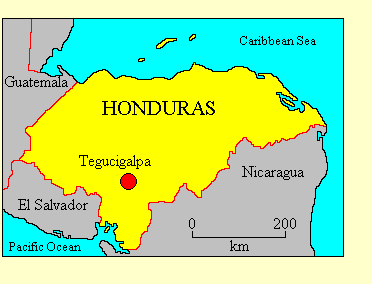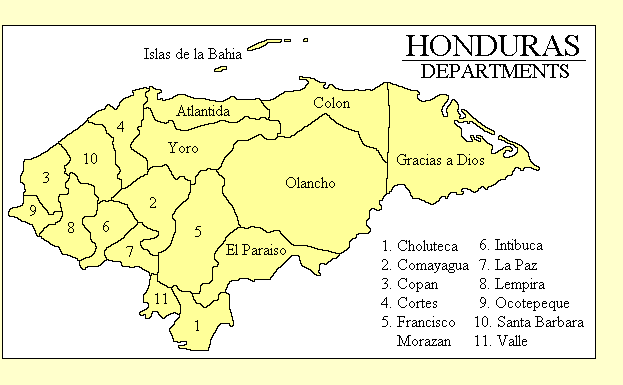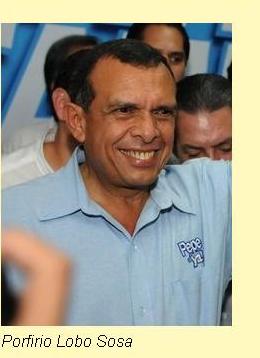
REPUBLIC OF HONDURASOfficial name: Republica de Honduras (Republic of Honduras)
• Freedom House 2011 rating: Political Rights 4, Civil Liberties 4 • Transparency International Corruption Index: 24% (134 of 178 countries rated) • Reporters Without Borders Press Freedom 2010 Index: 48.9% (143 of 178 countries rated) • Heritage Foundation Economic Freedom 2010 Index: 58.6% (99 of 178 countries rated) Political historyThe territory which is now Honduras was brought under Spanish rule
in the early 16th century, becoming part of the captaincy-general of
Guatemala in 1539. In 1823 Spanish rule ended and Honduras became part
of the United Provinces of Central America. When this federation broke
up in 1838 Honduras became an independent republic.
|
Honduran politics have been dominated for many decades by two parties, the conservative National Party of Honduras (PNH) and the Liberal Party of Honduras (PLH). The moderate left is represented by the Party for Innovation and Unity-Social-Democracy (PINU), and the far left by the Democratic Unification Party (PUD), but neither commands much support.
In 2005 the Liberal candidate Manuel Zelaya was elected President, and embarked on policies much more leftist than any previous Liberal president, forming an allience with Venezuela's radical President Hugo Chavez. In April 2009 Zelaya announced that he would hold a referendum to approve a constituent assembly to rewrite the constitution. The Supreme Court upheld a lower court injunction against the poll, and when Zelaya ignored its ruling the Court issued an order for his detention. On 28 June the Honduran Congress (which had a Liberal majority) voted to remove Zelaya from office. Troops then arrested Zelaya and flew him out of the country.
Although foreign opinion generally condemned Zelaya's removal as a coup d'etat, both the Supreme Court and the Congress acted within their constitutional powers, and it can be argued that it was Zelaya who was planning a coup against the constitutional order. In any case, the 2009 presidential and congressional elections went ahead as scheduled, and Porfirio Lobo Sosa of the National Party was elected president.
Freedom House's 2011 report on Honduras says: "Hondurasis not an electoral democracy. Elected president Jose Manuel Zelaya was forcibly removed by the military in a June 2009 coup, and although his term ran through January 2010, he was never reinstated. Roberto Micheletti, the president of Congress, was named the interim leader, and his de facto government oversaw previously scheduled general elections in November 2009. The elections were generally considered to have met international standards, but they took place in a climate of severely compromised civil liberties and press freedoms... Official corruption continues to dominate the political scene. Army officers have been found guilty of involvement in drug trafficking and related criminal conflicts. A 2006 transparency law was marred by claims that it contained amendments designed to protect corrupt politicians... Since the 2009 coup, authorities have systematically violated the constitutionís press freedom guarantees... Media ownership is concentrated in the hands of a few powerful business interests, and many journalists practice self-censorship, particularly given the deterioration in conditions for the media since the coup... Constitutional guarantees on the freedoms of assembly and association have not been consistently upheld... The judicial system is weak and inefficient."
Updated November 2011

